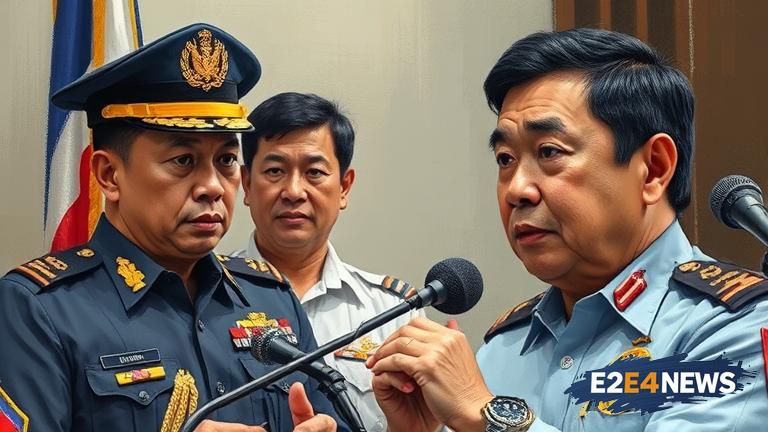The recent removal of Philippine National Police (PNP) Chief Nicolas Torre III by President Ferdinand Marcos Jr. has sent shockwaves throughout the country. The decision has left many wondering about the reasons behind the sudden change in leadership. According to sources, the removal of Torre III is part of the president’s efforts to reorganize the PNP and improve its overall performance. The PNP has been facing numerous challenges, including corruption, human rights abuses, and inefficiency. The president’s decision is seen as a move to address these issues and restore public trust in the police force. Torre III’s removal is also believed to be connected to the president’s desire to appoint a new leader who can implement his vision for the PNP. The new chief is expected to prioritize the fight against crime, corruption, and terrorism. The president’s decision has been met with mixed reactions, with some praising the move as a necessary step towards reform, while others have expressed concerns about the timing and motivations behind the removal. The PNP has been plagued by controversies, including the ‘war on drugs’ which has been criticized for its human rights abuses and lack of accountability. The new chief will face numerous challenges, including the need to rebuild public trust, improve police-community relations, and address the root causes of crime and corruption. The president’s decision is also seen as a test of his commitment to reform and his ability to lead the country towards a more just and peaceful society. The removal of Torre III has sparked a national debate about the state of the PNP and the need for meaningful reform. Many are calling for a more transparent and accountable police force, one that prioritizes human rights and the rule of law. The president’s decision has also raised questions about the role of the PNP in Philippine society and the need for a more nuanced approach to addressing the country’s security challenges. As the country waits for the appointment of a new PNP chief, many are hoping that the president’s decision will mark the beginning of a new era of reform and accountability in the police force. The PNP has a long history of corruption and abuse, and the new chief will face significant challenges in addressing these issues. However, with the right leadership and a commitment to reform, it is possible to create a more just and peaceful society. The president’s decision is a step in the right direction, but it will require sustained effort and commitment to achieve meaningful change. The removal of Torre III is also a reminder of the importance of accountability and transparency in government. The PNP must be held to the highest standards of integrity and accountability, and the new chief must prioritize these values in order to restore public trust. As the country moves forward, it is essential to prioritize the values of justice, equality, and human rights. The PNP has a critical role to play in upholding these values, and the new chief must be committed to creating a police force that is truly accountable to the people. The president’s decision has sparked a new era of hope and expectation, and it is essential that the new chief lives up to these expectations. The country is watching, and the new chief must be prepared to lead the PNP towards a brighter future. The removal of Torre III is a significant development, and it will be important to monitor the situation closely in the coming weeks and months. The president’s decision has the potential to be a game-changer, but it will require sustained effort and commitment to achieve meaningful change.
